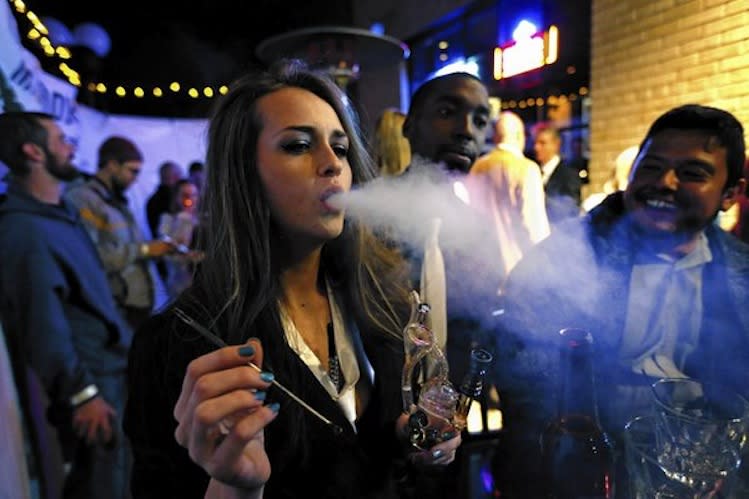Colorado high school coaches concerned over student-athletes using legalized marijuana
As Colorado legalized the use of recreational marijuana with the change of the calendar, the state's high school coaches are hoping the drug doesn't infiltrate their teams.
While the purchase of marijuana at state-sanctioned retail stores remains illegal for Coloradans under 21, coaches are concerned the more relaxed attitude toward the drug will lead to increased use among student-athletes, according to The Denver Post.
"For years, whether it's drinking, or now with the pot being legalized, it trickles down, unfortunately, to ninth-, 10th-, 11th- and 12th-graders," Cherry Creek football coach Dave Logan told the paper. "Unfortunately, nowadays, you see too often that a young guy might not have the same rules when he leaves school. So it's incumbent on us as high school coaches and mentors to not take the easy road on this and just give in."
Colorado high schools are are not required to test student-athletes for drugs, according to The Denver Post, and a recent Colorado Department of Education study revealed that marijuana use accounts for a whopping 32 percent of the state's student expulsions.
"It could make coaches worry," Denver Broncos tight end Joel Dreessen, who graduated from Fort Morgan (Colo.) High in 2000 and Colorado State University in 2005, told The Denver Post. "That's one of the deterrents to keep you away from doing something like that -- the fact that it's illegal. Now you're talking about strictly the self-discipline of athletes to not smoke or using any drug, because it's not helpful to me as an athlete.
"It used to be: a) it was illegal, and b) it's bad for you as an athlete. Now, it's just bad for you as an athlete."
While the number of marijuana-related expulsions may have increased in Colorado since Amendment 64 passed last year, the two most recent Prevention Youth Risk Behavior Surveillance Assessments conducted by the Centers for Disease Control suggest those punishments could be the result of heavier crackdowns rather than increased usage.
Colorado legalized medical marijuana in 2000 and unveiled groundbreaking regulations in 2010 that enabled guidelines for the retail sale of medical marijuana, so an argument could be made that the attitude toward the drug has been relaxing for some time now. However, the number of Colorado high school students who reported using marijuana within the past month dipped from 24.8 percent in 2009 to 22.0 percent in 2011.
Nationally, the use of marijuana within the past month actually increased among high school students from 20.8 percent to 23.1 percent during that same time span.




